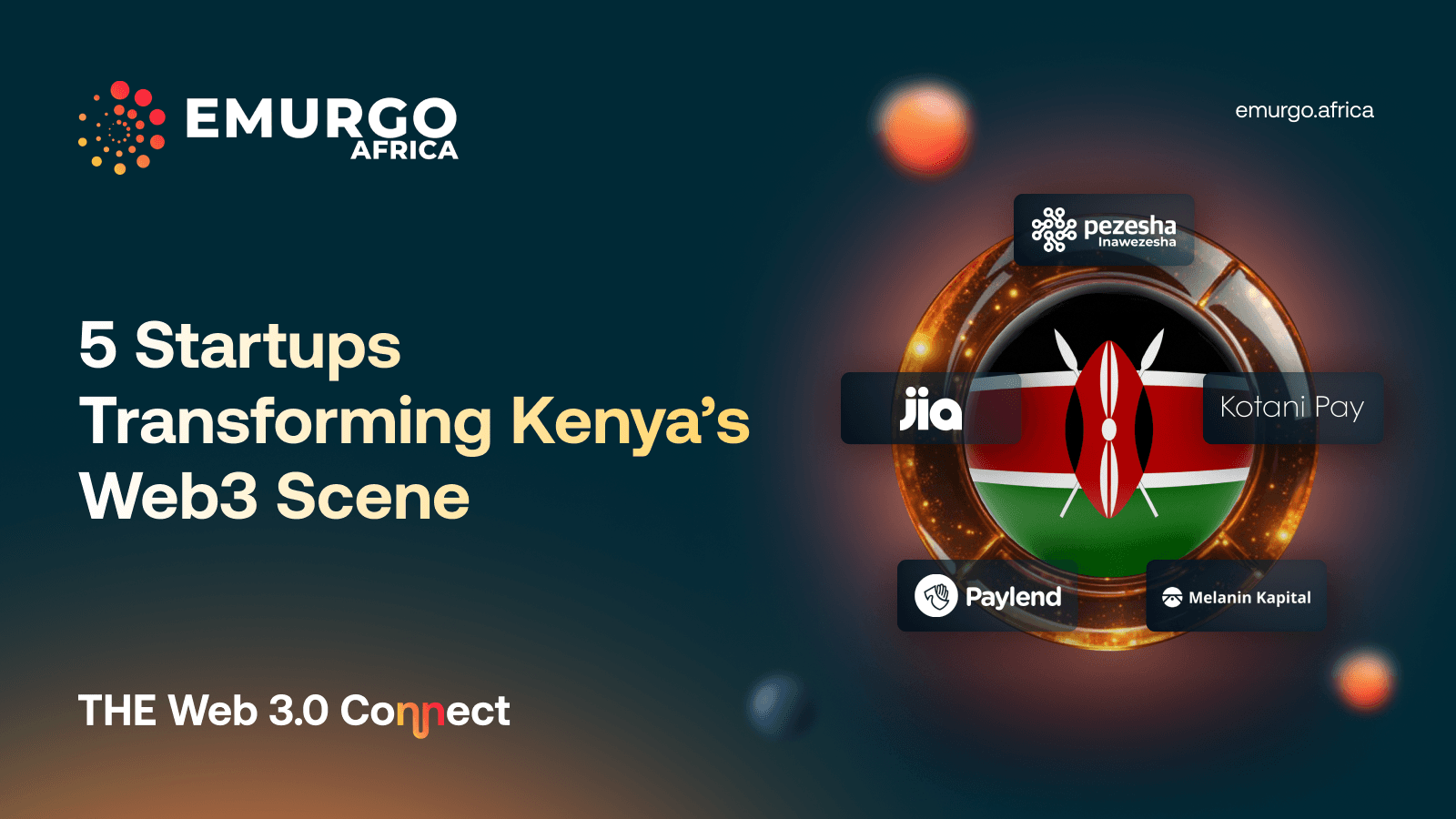You can also read the related posts:
Africa Socio-Economy Overview 2023 with Full Data Set
Blockchain Projects & Venture Funding in Africa 2023
RealFi - the fusion of traditional finance and DeFi
Hope you enjoy them as well!
By the way, do you have crypto currencies? Do you use them on your daily activities? What do you think about the situation of crypto adoption in Africa? Today, we look at the crypto adoption in Africa, where cryptos are available in Africa, and how the regulation is under going in Africa!
💡
In summary, while there are large disparities from country to country in Africa, some countries, such as Nigeria, Kenya, Egypt, and South Africa, have high crypto penetration rates by global standards. Although the seamless exchange of fiat and crypto currencies is still limited, the coverage of fiat and crypto currencies has expanded significantly over the past few years, and with the emergence of new exchanges and convenient mobile apps, it is expected to continue to expand the coverage and become more convenient and accessible. As for regulation, future trends will be very important for the industry as a whole, especially in light of the cautious but positive regulatory efforts being made in countries with high penetration rates, which will likely serve as models for regulation in Africa as a whole.
You can read below according to your interests for more detailed explanation and data👇🏾🤓
Table of Contents:
1. Crypto Adoption in Africa
Figure 1 shows the crypto adoption index by Chainalysis 2022 Geography of Cryptocurrency Report. The index is computed based on 5 sub indexes: centralized service value received, retail centralized service received, P2P exchange trade volume, DeFi value received, and retail DeFi value received. The detail of each index is found in the report available from the Chainalysis post. It is the adoption index, and not the adoption rate.
Although many African countries such as Gabon, Malawi, Burkina Faso, Libya, Botswana, Namibia, Congo Brazzaville, Mauritius, and Zambia have almost zero crypto penetration rate, some countries, such as Nigeria, Kenya, Egypt, and South Africa, have high crypto penetration rates by global standards. And these countries with high crypto penetration rates are the ones where many new blockchain start-ups have been attracting investment funds and rising. More about the investment funds and blockchain projects in Africa will be in the next bi-weekly report😉
Figure 1. Crypto Adoption Index

Data Source: Chainalysis. The 2022 Geography of Cryptocurrency Report downloaded from https://blog.chainalysis.com/reports/2022-global-crypto-adoption-index/.
2. Crypto Exchanges in Africa
Figure 2 shows the crypto exchanges which are based in African countries. 8 among 15 exchanges (Quidax, Yellow Card, Bitmama, busha, Naijacrypto, VIBRA, NairaEx, and cowrie.exchange) are based in Nigeria, 3 (VALR, Chainex, and OVEX) in South Africa, and 2 (Ejara and Pursa) in Cameroon and in Seychelles (OKX and Remitano) respectively. New exchanges are also emerging and the market is getting more and more competitive, which would result in the better user interface, user experience, and the better accessibility of the crypto exchanges.
There are more crypto exchanges available in Africa but not based in Africa. The major ones include Luno, Binance, Coinbase, CoinFLEX, Huobi, Paxful, Localbitcoins, Coinmama, Bitget, and Changelly.
Figure 2. African Crypto Exchanges

Source: Author's research as of November 26, 2022
Table 1 shows the availability of currencies at each crypto exchange. As many African crypto exchanges are based in Nigeria, NGN (Nigeria Naira) is, for now, most usable fiat at the crypto exchanges followed by ZAR (South African Rand), KES (Kenyan Shilling), and GHS (Ghanaian Cedi). The combination of available fiat and crypto currencies are varied: some like Chainex and busha is available only one fiat but exchangeable with variety of crypto currencies; some like Yellow Card, Naijacrypto, Pursa, and Remitano have great coverage of fiat but exchangeable only with limited cryptos; some like OKX has good coverage of both fiat and crypto currencies. Although the seamless exchange of fiat and crypto currencies is still limited, the coverage of fiat and crypto currencies has expanded significantly over the past few years, and with the emergence of new exchanges and convenient mobile apps, it is expected to continue to expand the coverage and become more convenient and accessible for general users.
Table 1. Availability of Currencies

Source: Author's research as of November 26, 2022

Source: Author's research as of November 26, 2022

Source: Author's research as of November 26, 2022
3. Crypto Regulation in Africa
Figure 3 is the figure 3 on page 3 of the October 2022 Regional Economic Outlook for sub-Saharan Africa by IMF and shows the crypto regulatory and Central Bank Digital Currency (CBDC) in Sub-Saharan African countries. According to the report, only one-quarter of countries in sub-Saharan Africa formally regulate crypto. Two-thirds have implemented some restrictions and six countries —Cameroon, Ethiopia, Lesotho, Sierra Leone, Tanzania, and the Republic of Congo— have banned crypto. Zimbabwe has ordered all banks to stop processing transactions and Liberia directed a local crypto startup to cease operations (implicit bans). More African central banks are exploring digital currencies. Several sub-Saharan African central banks are exploring or in the pilot phase of a digital currency, following Nigeria’s October 2021 introduction of e-Naira. Nigeria was the second country after the Bahamas to roll out a CBDC.
Figure 2. Crypto Regulatory and CBDC

Source: the October 2022 Regional Economic Outlook for sub-Saharan Africa by IMF
In terms of the registration and licensing of virtual assets (VAs) and virtual assets service providers (VASPs), countries with high crypto penetration rate such as Nigeria, Kenya, and South Africa have implemented the regulation. For example, every crypto asset or service in Nigeria is required Virtual Asset Service Provider License; In South Africa, in October 2022, the Financial Services Conduct Authority (FSCA) declared crypto assets a “financial product”, under the Financial Advisory and Intermediary Services Act of 2002. This will require those who offer advisory or intermediary services in relation to crypto assets to apply for a license under the Act by the end of November 2023 (PwC Global Crypto Regulation Report 2023); Under Kenya’s Money Remittance regulations, cryptocurrency companies must acquire licensing from Kenyan authorities to offer transmission services within Kenya. The detail of the rules that apply to the VA and VASP industry (such as count of entity assets, tax related regulations etc.), how this is regulated, and market surveillance and anti-market manipulation frameworks (such as issuance of tokens etc.) are still in an open discussion in African countries.
For anti-money laundering, counter-terrorism financing and counter proliferation financing (AML, CTF and CPF) requirements for consumer protection (CDD / KYC requirements, monitoring customer transactions and behavior, screening, marketing and advertising requirements and associated controls), Nigeria now requires all crypto exchanges providing service to Nigerians to provide a permit that gives the Commission access to its records and submit trading information at a set interval.
The future trends of regulation will be very important for the industry as a whole, especially in light of the cautious but positive regulatory efforts being made in countries with high penetration rates, which will likely serve as models for regulation in Africa as a whole.
How was today's report? Hope you enjoyed it!💃🏾🕺🏾
Follow EMURGO Africa for more information

EMURGO Africa invests and supports local Web3 projects in the region to adopt Cardano’s decentralized blockchain technology to build socially impactful solutions.
As a regional entity of EMURGO, the official commercial arm of Cardano, EMURGO Africa also runs a local Cardano accelerator in Africa, Adaverse, which accepts applications year-round.
For more up-to-date information on EMURGO Africa, follow the official channels listed below.
About EMURGO Africa
- Official Website: emurgo.africa
- Twitter: @EmurgoAfrica
- Telegram: https://t.me/emurgoafrica



